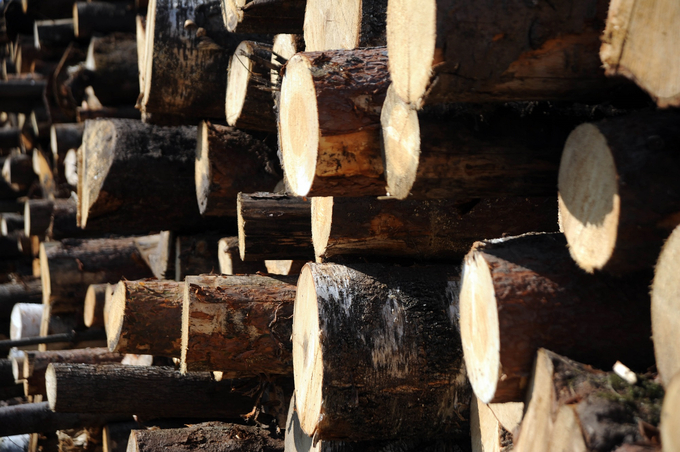November 20, 2025 | 07:59 GMT +7
November 20, 2025 | 07:59 GMT +7
Hotline: 0913.378.918
November 20, 2025 | 07:59 GMT +7
Hotline: 0913.378.918

Governments have a crucial role to play in halting deforestation.
Government action in stopping deforestation, how grazing livestock can help restore degraded land, and farmer field schools all featured in reports released by the Food and Agriculture Organization of the United Nations (FAO) at the FAO-Global Landscapes Forum digital forum Transforming agri-food systems with forests.
Governments have a crucial role to play in halting deforestation so that our agrifood systems are sustainable, according to Halting deforestation from agricultural value chains: the role of governments.
Global population growth means that by 2050 we are predicted to need 50 percent more food than in 2012. Agricultural expansion already drives nearly 90 percent of deforestation, and forests must be protected and managed sustainably to help combat climate change and biodiversity loss.
The report explains how this challenge presents an opportunity to transform the global food system so that both agriculture and forests benefit and it underlines the central role of governments in bringing about this transformation.
“We must build sustainable global agrifood systems based on the synergies between agriculture and forests that provide a win-win outcome for both sectors,” said Tiina Vähänen, Deputy Director of FAO’s Forestry Division.
“Moving to a more sustainable approach to food production will increase agricultural production in coming years while also helping to meet the globally agreed 2030 target for ending deforestation.”
'Forest positive’ food production
The report charts progress made towards ending deforestation and systems put in place by the international community, governments and the private sector to decouple agricultural production from deforestation.
To meet the 2030 target to halt deforestation, the report recommends – among other important actions – that governments create the conditions for farmers to change their practices to maximise production while minimising the impact on forests and biodiversity.
The paper summarises approaches for governments to decouple deforestation from agricultural commodities that are associated with deforestation and forest degradation, such as beef, soy, palm oil, coffee, cocoa, rubber and others.
The report recommends that governments pay special attention to smallholder farmers, who produce roughly 35 percent of the world’s food, but often live in poverty and cannot afford the costs or interruptions to income incurred through changing the way they work.
According to FAO’s Global Forest Resources Assessment 2022, we have lost 420 million hectares of forest through deforestation since 1990, and deforestation continues although the rate slowed from 12 million hectares per year in the decade 2010-2015 to 10 million hectares per year in the period 2015-2020. Concerted efforts are needed to halt deforestation and governments have a central role in transforming agrifood systems.
Restoring degraded land
Grazing livestock are often considered a threat to forests and landscapes because they can damage vegetation and erode soil.
But Grazing with Trees highlights how, when properly integrated, livestock grazing can play a key role in restoring degraded land with trees, halting desertification and improving wildfire prevention in drylands.
Finding such a balance is of global importance given that drylands are home to about 25 percent of the global population, contain 50 percent of the world’s livestock, 27 percent of the world’s forests, and is where about 60 percent of the world’s food production takes place.
The report explains that woody plants in drylands provide animal feed, timber and fruit as well as helping to increase biodiversity and regulate soil and water cycles. At the same time, grazing livestock help control vegetation (reducing the risk of wildfires), accelerate nutrient cycles and improve soil fertility.
“When livestock and trees are managed well together, it creates an integrated agroforestry system that can boost local ecosystems and enhance food security,” Tiina Vähänen said.
The report explains the benefits of silvopastoralism, which combines animal grazing and trees, and recommends this traditional knowledge be shared and updated through peer-to-peer learning and training.
Silvopastoralism’s potential to create alternative livelihoods, enhance the food security and income of local communities and prevent land degradation could have a transformative effect on the production and sustainability of drylands globally, according to the report.
Part of the solution
Landscape planners and decision-makers should consider livestock as part of the solution, the report recommends, and carefully restore open tree cover – when tree cover is between 30 and 70 percent – as part of an integrated landscape approach using agroforestry to promote healthy ecosystems.
The report follows FAO’s flagship publication, The State of the World’s Forests 2022, which emphasizes the importance of halting deforestation, restoring degraded lands and expanding agroforestry, and creating green value chains.
Farmer field schools
The policy brief What have we learnt from trees? Three decades of farmer field schools on agroforestry and forestry was also launched. It reports that forestry-related farmer field schools have been applied in over 20 countries across Africa, Asia and the Americas involving over 200,000 producers. The policy brief recommends making a greater investment to support family farmers and small-scale producers strengthening their knowledge and skills.
(Fao.org)

(VAN) Flagship partnership secures additional GBP 16.9 million to strengthen forest monitoring, transparency and country support to 2030.

(VAN) After a turbulent year for international development, the aid and assistance landscape has shifted, with donors rethinking how, where and why they support sustainable development.

(VAN) A new tool for measuring the economic value of farm animal welfare improvements has been developed, potentially transforming how consumers, retailers and the government evaluate animal welfare policies.

(VAN) The Amazon rainforest could face a renewed surge of deforestation as efforts grow to overturn a long-standing ban that has protected it.

(VAN) Conflict and violence are driving extreme hunger in six major crises.

(VAN) European Union member states are seeking to postpone the implementation of the bloc's anti-deforestation law by another year, an EU negotiating draft dated November 10 shows.

(VAN) Nearly 30 new avian influenza outbreaks have recently been reported in Germany, both on commercial poultry farms and in backyard flocks.